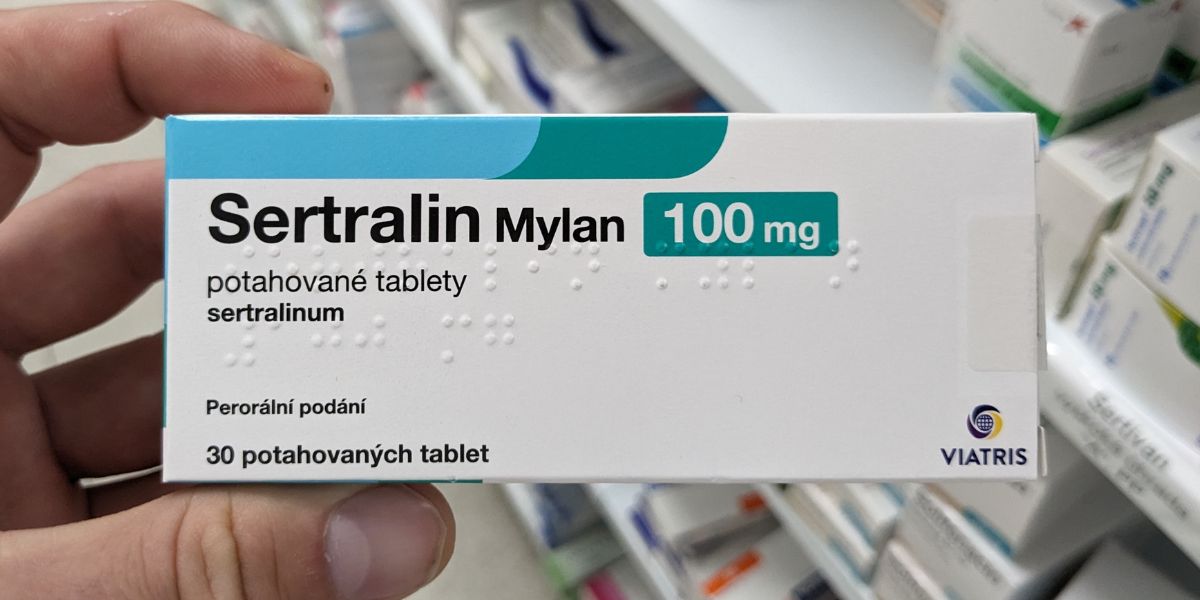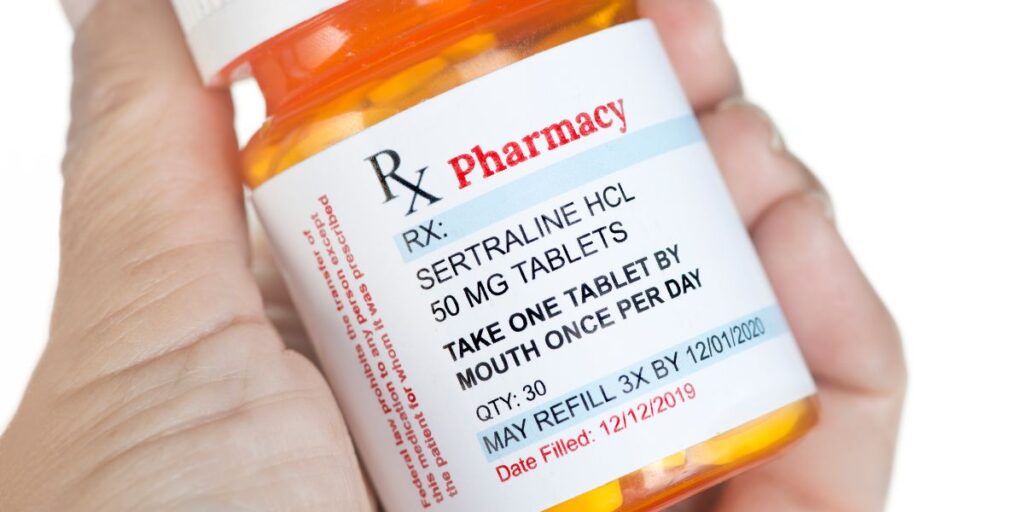Zoloft (Sertraline) Overdose

Zoloft, the brand name for sertraline, is a widely prescribed antidepressant in the class of selective serotonin reuptake inhibitors (SSRIs). It’s used to treat a variety of mental health conditions, including depression, obsessive-compulsive disorder (OCD), and anxiety disorders.
While Zoloft is generally safe when taken as prescribed, there are significant risks associated with taking more than the recommended dose. Overdosing on Zoloft can lead to severe, potentially life-threatening symptoms.
Zoloft is often prescribed because it is safer than older antidepressants like tricyclics. However, this does not mean it is without risks.
Taking too much Zoloft can lead to serious side effects. This can happen by accident or on purpose. Some side effects may be mild, like pain. Others can be severe, such as serotonin syndrome and seizures.
What Is Zoloft (Sertraline)?
Zoloft (sertraline) is an antidepressant medication belonging to the class of selective serotonin reuptake inhibitors (SSRIs). SSRIs work by increasing the amount of serotonin, a neurotransmitter that influences mood, in the brain.
Zoloft is commonly prescribed to treat depression, obsessive-compulsive disorder (OCD), panic disorder, post-traumatic stress disorder (PTSD), social anxiety disorder, and premenstrual dysphoric disorder (PMDD). The Food and Drug Administration (FDA) has approved Zoloft for these uses, making it one of the most commonly prescribed medications for mental health conditions.
Zoloft helps with depression and anxiety, but it should be taken exactly as your doctor instructs. The standard dose of sertraline varies depending on the treated condition and the patient’s response to the medication. Taking more Zoloft than prescribed can lead to serious health risks, including overdose.

Can You Overdose on Zoloft?
Yes, it is possible to overdose on Zoloft. An overdose occurs when a person takes more than the prescribed amount of sertraline, either accidentally or intentionally. While Zoloft is considered safer than older antidepressants like tricyclic antidepressants, overdosing on it can still cause severe and potentially life-threatening consequences.
A Zoloft overdose can be more serious depending on how much was taken if it was mixed with other drugs and the person’s health. Sometimes, taking too much Zoloft can cause serotonin syndrome, a serious condition from too much serotonin in the brain. This condition can rapidly escalate to become life-threatening if not treated promptly.
Signs and Symptoms of Taking More Zoloft than Prescribed
Taking more Zoloft than prescribed can lead to a range of symptoms, some of which may be mild, while others can be severe and life-threatening. Early recognition of these signs and symptoms is essential for preventing a full-blown overdose.
Common symptoms of taking an excessive dose of Zoloft include:
- Nausea and vomiting
- Dizziness and lightheadedness
- Tremors or shaking
- Agitation or irritability
- Confusion or disorientation
- Increased heart rate (tachycardia)
- High blood pressure (hypertension)
- Fatigue or drowsiness
In severe cases, a person who has taken more Zoloft than prescribed may experience more alarming symptoms, such as:
- Hallucinations (seeing or hearing things that aren’t there)
- Seizures
- Fainting
- Coma
If you or someone you know is experiencing any of these severe symptoms after taking sertraline, it is crucial to seek emergency medical attention immediately. Call poison control or go to the nearest emergency room.
Increased Risks for a Zoloft Overdose
Certain factors can increase the risk of a Zoloft overdose. Understanding these risk factors can help in preventing accidental overdoses and ensuring the safe use of sertraline. The following are some of the most common risk factors:
Young Adults
Young adults, particularly those under the age of 25, may be at a higher risk of experiencing suicidal thoughts or behaviors when taking antidepressants like Zoloft. This population may also be more prone to taking more than the prescribed dose, either in an attempt to self-harm or because of misunderstanding dosage instructions.
Polydrug Use
Taking Zoloft in combination with other substances, such as alcohol, recreational drugs, or other medications, can increase the risk of an overdose. Mixing Zoloft with other central nervous system depressants or stimulants can lead to dangerous interactions, including serotonin syndrome.
Pre-existing Health Conditions
People with pre-existing health conditions, such as liver or kidney disease, may have a higher risk of experiencing an overdose because their bodies may not metabolize the drug as efficiently. This can lead to higher concentrations of the drug in the bloodstream.
High Dose of Sertraline
Starting at a high dose or rapidly increasing the dose of sertraline can increase the risk of an overdose. It’s important to follow your doctor’s instructions carefully and not to adjust the dosage without medical advice.
Sertraline Overdose Symptoms
A sertraline overdose can manifest in a variety of symptoms, some of which are more serious than others. Recognizing these symptoms can be life-saving. The following are common symptoms associated with a sertraline overdose:
- Nausea and Vomiting: These are often the first signs of an overdose. The body may attempt to expel the excessive drug through vomiting.
- Tremors and Muscle Stiffness: An overdose can cause involuntary muscle movements or stiffness, making it difficult to move or control muscles.
- Sertraline Overdose Hallucinations: Hallucinations can occur when the brain is overwhelmed by the drug, leading to sensory experiences that are not real.
- Sertraline Overdose Seizures: Seizures are a critical symptom that indicates severe neurological distress. Seizures require immediate medical intervention.
- Serotonin Syndrome: This potentially life-threatening condition is caused by an excess of serotonin in the brain. Symptoms include high fever, agitation, increased reflexes, tremors, sweating, dilated pupils, and diarrhea. In severe cases, it can lead to muscle breakdown, kidney failure, or death.
- Coma: In extreme cases, a sertraline overdose can result in a loss of consciousness and coma.
If any of these symptoms are present, immediate medical care is necessary. Treatment usually involves hospital care.
Activated charcoal is given to prevent further drug absorption. IV fluids are provided. Medications are used to manage symptoms such as seizures or high blood pressure.

Zoloft Abuse and Treatment
If you or a loved one is struggling with the misuse or abuse of Zoloft, it is essential to seek professional help. Overdosing on Zoloft can be very serious.
Misusing it for a long time can lead to health problems, including a higher risk of serotonin syndrome, seizures, and dangerous reactions.
At Northridge Addiction Treatment Center (NATC), we specialize in treating people who are struggling with substance abuse and co-occurring mental health disorders, including the misuse of prescription medications like Zoloft.
Our team of caring, experienced professionals provides comprehensive treatment programs tailored to each person’s specific needs. These evidence-based treatment programs include medical detox, medication-assisted treatment (MAT), dual diagnosis treatment, and various others, along with ongoing support to help patients achieve and maintain a meaningful recovery.
If you’re worried about how you are going to continue battling substance abuse, contact NATC. Our dedicated treatment specialists are here to guide you and help you begin your recovery process.
Find Meaningful Recovery
Our caring and compassionate specialists are eager to help you comfortably navigate this journey to recovery. Our individualized treatment plan, programs, and therapies may be a perfect match for you or your loved one. Let us assist you in living the happy life you deserve. It starts with a phone call.




